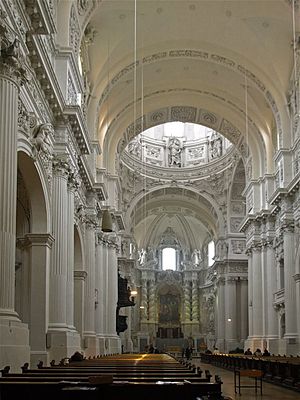When we hear in today’s first reading that Judas Maccabeus restored the temple worship, the joy of the people is almost palpable.[1] It was as if a loud, persistent noise had been suddenly silenced or a nagging pain cured. Their reasons for rejoicing at the end of a period of oppression by the pagan Greeks were essentially religious. They were to experience again, in its elaborate ceremonial and eloquent prayers, the beauty of the Jewish worship. It was also treasured by the Jews as embodying a centuries-old tradition, going back to Moses and beyond, that had established them as God’s chosen people. Most importantly, they knew that their liturgy had been given to them by God himself. With what assurance, then, did they enter the temple, knowing that God would certainly listen to the prayers and ceremonies that he had himself ordained!
As Catholics present at this Eucharist, we can experience the same sentiments that enriched our forbears in the faith. For the Mass is also beautiful in its formal and solemn prayers, in its continuity with a form of worship that has its roots in the New Testament and even earlier, and in its having been authoritatively approved by the Magisterium, i.e., through the agency of our bishops and the pope. Furthermore, our common worship is the bond that unites us to our own Bishop, and through him to all the bishops and the faithful throughout the world, as the new people of God, as, in Saint Paul’s words, “the Israel of God.”[2] How great, then, is the reverence we bring to a liturgy that encompasses everything that made the Jewish temple a sacred place and then surpasses it. For here we have represented—i.e., re-presented, presented anew—the unique sacrifice of Jesus on Calvary by which all mankind has been reconciled to God. May the Holy Spirit transform our lives through our participation in this sacred action.
[1] Jews still honour today the rededication of the Temple in the festival of Hanukkah.
[2] Gal 6.16.










